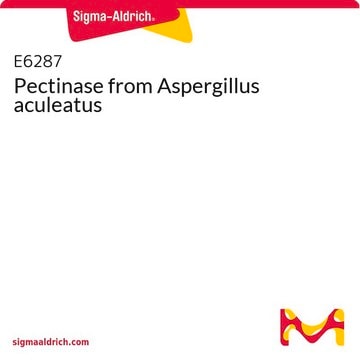380709
Benzyl 4-hydroxybenzoate
99%
Synonym(s):
4-Hydroxybenzoic acid benzyl ester, Benzyl paraben
About This Item
Recommended Products
Quality Level
Assay
99%
form
powder
mp
109-112 °C (lit.)
solubility
ethanol: soluble 25 mg/mL, clear, colorless
functional group
ester
phenyl
SMILES string
Oc1ccc(cc1)C(=O)OCc2ccccc2
InChI
1S/C14H12O3/c15-13-8-6-12(7-9-13)14(16)17-10-11-4-2-1-3-5-11/h1-9,15H,10H2
InChI key
MOZDKDIOPSPTBH-UHFFFAOYSA-N
Looking for similar products? Visit Product Comparison Guide
General description
Application
Disclaimer
Signal Word
Warning
Hazard Statements
Precautionary Statements
Hazard Classifications
Eye Irrit. 2 - Skin Irrit. 2 - STOT SE 3
Target Organs
Respiratory system
Storage Class Code
13 - Non Combustible Solids
WGK
WGK 3
Flash Point(F)
Not applicable
Flash Point(C)
Not applicable
Personal Protective Equipment
Choose from one of the most recent versions:
Already Own This Product?
Find documentation for the products that you have recently purchased in the Document Library.
Customers Also Viewed
Our team of scientists has experience in all areas of research including Life Science, Material Science, Chemical Synthesis, Chromatography, Analytical and many others.
Contact Technical Service












